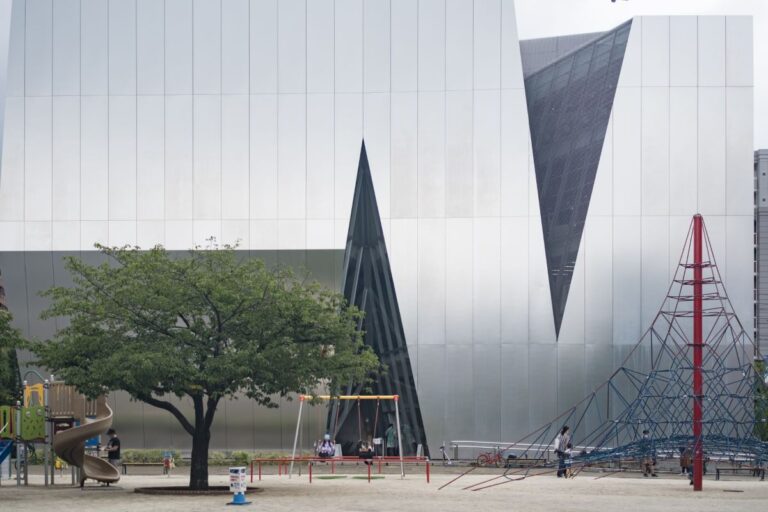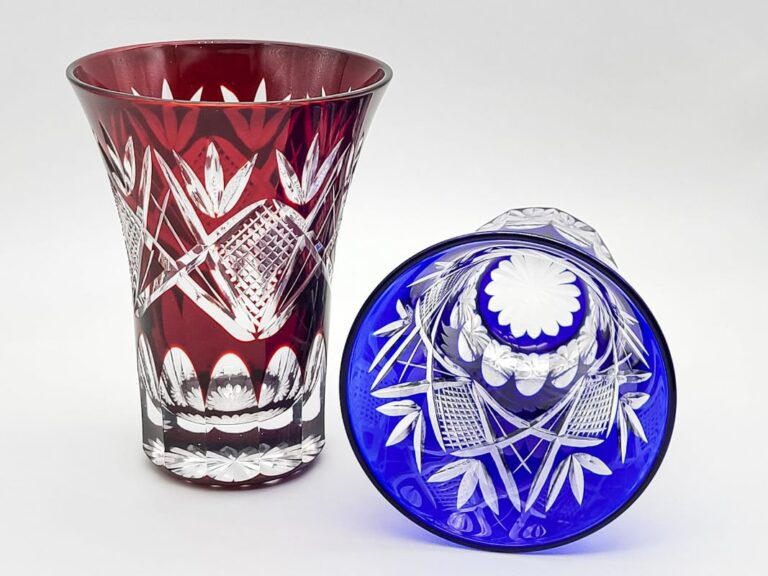Ryogoku Kokugikan, the National Sumo Arena is a stadium used for Sumo tournaments as well as boxing and other martial arts matches.
Key Takeaways
- A cultural landmark in Tokyo and the home of sumo wrestling.
- Sumo matches will start at 9:00 a.m.
- Admission is free on days when there are no events.
- Also has a Sumo Museum where you can learn about sumo.
- Hosts six sumo tournaments each year, each lasting 15 days.
- Tournaments are held in January, March, May, July, September, and November.
- Tickets can be purchased in advance or on the day of the event.
- Seating capacity of over 11,000.
The popularity of sumo is said to be declining these days, but as a national sport, it is worth experiencing the power of sumo.

The Tokyo Grand Sumo Tournament is held at Ryogoku Kokugikan in January, May and September. Tickets go on sale one month before the first day of each tournament.
About Ryogoku Kokugikan: The Home of Sumo Wrestling
Ryogoku Kokugikan is a cultural landmark in Tokyo, Japan, and is known as the home of sumo wrestling. The arena is in the Ryogoku district of Sumida and has a seating capacity of over 11,000. The venue has been hosting sumo tournaments since 1909 and has become an integral part of Japanese culture.
Visitors to Ryogoku Kokugikan can experience the excitement of sumo wrestling up close and personal. The venue hosts six sumo tournaments each year, each lasting 15 days, and attracts thousands of spectators from around the world. The tournaments are held in January, March, May, July, September, and November, and tickets can be purchased in advance or on the day of the event.
Location and History
Ryogoku Kokugikan is a sumo wrestling arena in the Ryogoku district of Sumida, Tokyo. It is the largest indoor arena in Japan with a seating capacity of 11,098. The arena is situated near the Edo-Tokyo Museum and the Sumida Hokusai Museum, which makes it a popular destination.
Geographical Location
The address is 1-3-28 Yokoami, Sumida-ku, Tokyo. It is easily accessible by public transport, with the Ryogoku Station (JR Sobu Line) and Ryogoku Station (Toei Oedo Line) within walking distance. You can also take the Toei Bus or the Tokyo Water Bus to reach the arena.
History of Ryogoku Kokugikan
The Ryogoku Kokugikan was first built in 1909 and was initially called the Ryogoku Kaikan. It was a wooden structure that could seat up to 7,000 spectators. In 1929, the arena was reconstructed with a steel frame and a concrete foundation, and the seating capacity was increased to 10,000.
During World War II, the arena was severely damaged and was used as a military warehouse. It was later reconstructed in 1954 and was renamed the Ryogoku Kokugikan. The arena underwent renovations over the years, including the installation of air conditioning in 1961 and the addition of a new roof in 1984.
Today, the stadium is the home of professional sumo wrestling in Japan. It hosts three of the six annual sumo tournaments, known as honbasho, which take place in January, May, and September. The arena also hosts other events, such as boxing matches, concerts, and martial arts demonstrations.
Facilities
The multipurpose indoor arena that is primarily used for sumo wrestling tournaments and has a seating capacity of 11,098. The arena is owned by the Japan Sumo Association and was opened in 1985.
Arena
The main attraction of Ryogoku Kokugikan is the sumo wrestling tournaments that are held here three times a year. The tournaments are held in January, May, and September and last for 15 days. The arena is also used for other events such as boxing, wrestling, and concerts.
The seating in the arena is divided into two levels, with the lower level being closer to the ring and more expensive. The upper level is further away from the ring but offers a better view of the entire arena. There are also special boxes available for VIPs.
Museum
Ryogoku Kokugikan also has a sumo wrestling museum on the first floor. The museum displays various artifacts related to sumo wrestling such as wrestlers’ kesho-mawashi (ceremonial aprons), trophies, and other historical items. You can learn about the history of sumo wrestling and the different techniques used by the wrestlers.
Restaurants
Inside there are restaurants on the first and second floors. The restaurants serve Japanese cuisine, including sushi, tempura, udon and of course the sumo staple of chanko Nabe. You can enjoy a meal before or after the sumo wrestling tournament or other events.
Shops
There are shops inside Ryogoku Kokugikan that sell sumo-related souvenirs such as keychains, t-shirts, and other merchandise. You can purchase these items as a memento of their visit to the arena or as a gift for someone else.
Events and Tournaments
Ryogoku Kokugikan is not only a sumo stadium but also a venue for various events and concerts throughout the year. Here’s a few of the major events held at the stadium:
Sumo Tournaments
Sumo tournaments are the main events at Ryogoku Kokugikan. The stadium hosts three major sumo tournaments every year: the January Tournament, the May Tournament, and the September Tournament.
Each tournament lasts for 15 days and attracts thousands of sumo fans from all over Japan and the world. book tickets in advance as they tend to sell out quickly.
Concerts
Ryogoku Kokugikan also hosts concerts by popular artists and bands. The stadium has a capacity of up to 11,000 people, making it a popular venue for concerts in Tokyo. Some of the notable artists who have performed at the stadium include BTS, Ariana Grande, and Ed Sheeran. The stadium also hosts traditional Japanese music concerts, such as taiko drumming performances.
Other Events
In addition to sumo tournaments and concerts, Ryogoku Kokugikan hosts other events throughout the year. These events include martial arts competitions, boxing matches, and pro wrestling tournaments.
Overall, Ryogoku Kokugikan is a versatile and dynamic venue that offers a wide range of events and entertainment options for all.
How to Get There
By Train
The easiest way to get to Ryogoku Kokugikan is by train. The venue is just a few minutes walk from Ryogoku Station, which is served by the JR Sobu Line and the Toei Oedo Line. Take the east exit from the station and follow the signs to the Kokugikan.
By Bus
If you prefer to take the bus, there are several options available. From Tokyo Station, take the Toei Bus (route 30) and get off at the Kokugikan-mae stop. From Asakusa Station, take the Toei Bus (route 99) and get off at the Kokugikan-mae stop. From Shibuya Station, take the Keio Bus (route 40) and get off at the Kokugikan-mae stop.
By Car
If you’re driving to the Kokugikan, be aware that parking is limited. There is a small parking lot on the east side of the venue, but it fills up quickly. It’s best to arrive early to secure a spot. Alternatively, there are several paid parking lots in the area.
Here are some recommended parking lots:
- Ekimae Parking (5-minute walk)
- Yokozuna Parking (5-minute walk)
- Kokugikan Parking (3-minute walk)
Note that driving in Tokyo can be challenging, especially if you’re not used to the traffic and road rules. Consider taking public transportation instead.
FAQ
Ryogoku Kokugikan is a popular destination for both locals and tourists. Here are some frequently asked questions to help you plan your visit:
How do I purchase tickets for a sumo tournament?
Tickets for sumo tournaments can be purchased online or at the box office at Ryogoku Kokugikan. purchase tickets in advance as they tend to sell out quickly. Prices vary depending on the seat location and time of day. It is also possible to purchase same-day tickets at the box office, but availability is not guaranteed.
What should I wear to a sumo tournament?
There is no strict dress code for attending a sumo tournament, but dress comfortably as the matches can last for several hours. Many attendees wear traditional Japanese clothing such as yukata or kimono, but casual clothing is also acceptable. It is important to remove shoes and hats before entering the arena.
Is there anything else to do in the Ryogoku area?
Yes, the Ryogoku area is known for its connection to sumo wrestling and has several related attractions. The Edo-Tokyo Museum (currently closed for renovation) is nearby and features exhibits on the history of Tokyo, including a section dedicated to sumo wrestling. The Sumida Hokusai Museum is also in the area and features works by the famous Japanese artist, Katsushika Hokusai.

Ryogoku Kokugikan Details
| Name | Ryogoku Kokugikan 両国国技館 |
|---|---|
| Fee | Masu-seat A – 11,300 yen Masu-seat B – 10,300 yen Masu-seat C – 9,200 yen Chair-seat A – 8,200 yen Chair seat B-6200 yen Chair seat C-3600 yen Day-of-performance tickets (2nd floor unreserved seats)-2100 yen (on sale from 8:00 a.m. on the day, one ticket per person) |
| Address | 1-3-28 Yokoami, Sumida-ku, Tokyo |
| Telephone | 03-3623-5111 |
How To Get To Ryogoku Kokugikan
- 1 minute walk from West Exit of Ryogoku Station on Sobu Line
- 4 minute walk from Exit A3 of Ryogoku Station on the Toei Oedo Line






